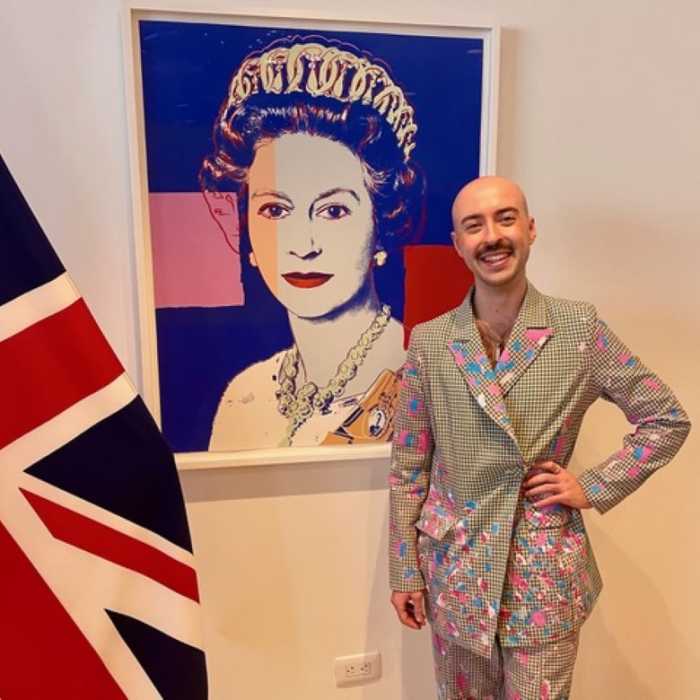The setting of Hansol Jung’s “Merry Me,” a sort of madcap, modernized restoration comedy, is described as a “Naval basecamp of A Nation’s most prestigious navy on an Island not far from Another Nation’s most vulnerable coast cities.” If you deem this intriguing, you should find much pleasure in the play. If you deem it baffling, you may be in for a slog.
“Merry Me,” it must be noted, is a brash mashup of Greek tragedies by Euripides and 17th century sex farces by William Wycherley. By definition, the intricately tangled plot of this restoration comedy defies easy description. Apparently, during a painfully protracted war, the electricity has been shut off to the naval base by enemy forces, and General Memnon (a riff on the Trojan war king, Agamemnon) is responsible for restoring power. Alas, he is impotent both in the war room and the bedroom.
The General’s impish, “woke” son, Pvt. Willy Memnon, is newly married to Sapph (Nicole Villamil), but fails to live up to his husbandly duties. He calls her “Mrs. Memnon” during attempts at lovemaking, which irks her. Willy is, understandably, frustrated by the blackout. “Our fleets can’t start their engines, no one can call their mothers, or watch porn,” he says. He believes it’s his destiny to fix the situation.
The unlikely protagonist is the libidinous Lt. Shane Horne, an alluring, muscular woman described as “God’s gift to lady parts of all shapes, colors and sizes.” Although she voraciously satisfies the women on the base, her own “merries” (code for climax) are elusive. The play follows Lt. Horne’s epic quest to find sexual satisfaction.
Lt. Horne’s sexual conquests include Dr. Jess O’Nope (Marinda Anderson), a psychiatrist who turns out to be an unwitting prophet, and the General’s sex-starved wife (Cindy Cheung). Will Sapph also fall prey to the alluring Lt. Horne?

The scenarios and wink-wink quips range from clever to throwaway to groan-inducing. When Willy and Sapph visit the General (David Ryan Smith) at his lodgings, Sapph asks, “Doesn’t he prefer you to enter through the back door?” Ba-dump-bump.
Throughout 90 intermissionless minutes, various angels and soldiers flit in and out. Characters randomly address the audience directly, narrating the story or touting their acting skills. There’s a recurring gag involving a “phone” made out of paper cups and a rope. One of the wittiest bits finds an errant angel from an iconic Broadway play crashing the party.
What keeps the shenanigans in check are the exuberant performances, under the guidance of Leigh Silverman. Esco Jouléy imbues Lt. Horne with a brazen sexual magnetism. The deadpan Ryan Spahn is a hoot as Willy, a man-child yearning to prove he’s more than a spoiled dweeb. Shaunette Renée Wilson is perfectly cast as The Angel who commands respect among the fumbling mortals.
The excessively self-conscious “Merry Me,” with sets by Rachel Hauck and costumes by Alejo Vietti, teeters closely on the edge of sophomoric, and maybe that’s by design. Beneath the mayhem are more serious themes. In this realm, for example, female orgasm isn’t simply an objective of lust. It equals power and liberation from an oppressive patriarchy. Wackiness aside, it’s refreshing to see such a sex-positive piece where queer women call the shots.
“Merry Me” | New York Theatre Workshop | 74 E. 4th St. | $49–$69 |Through November 19, 2023 | https://www.nytw.org/show/merry-me/ | 90 mins. no intermission


































